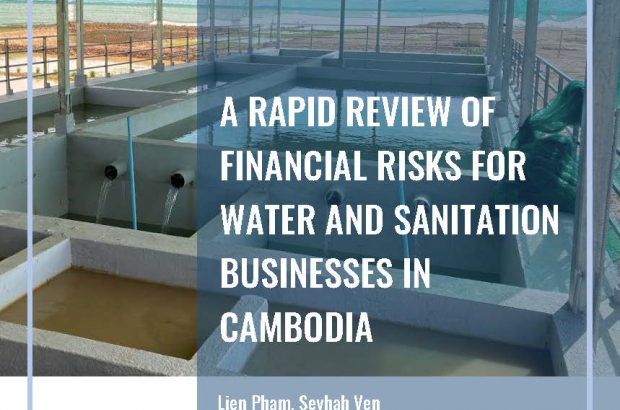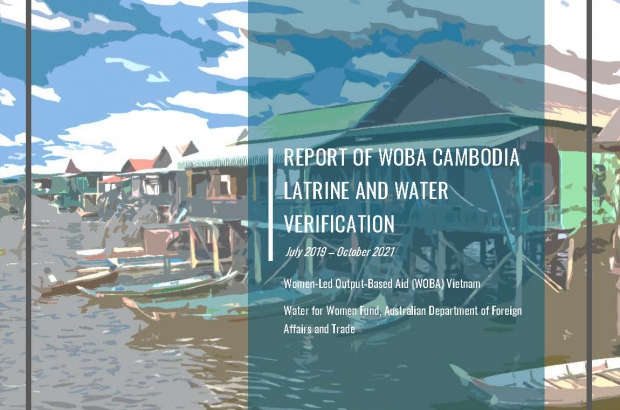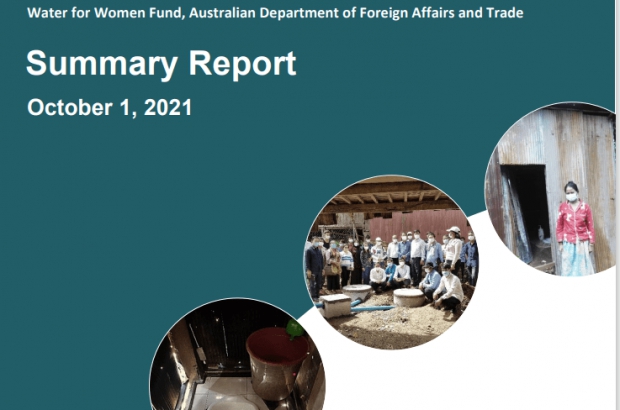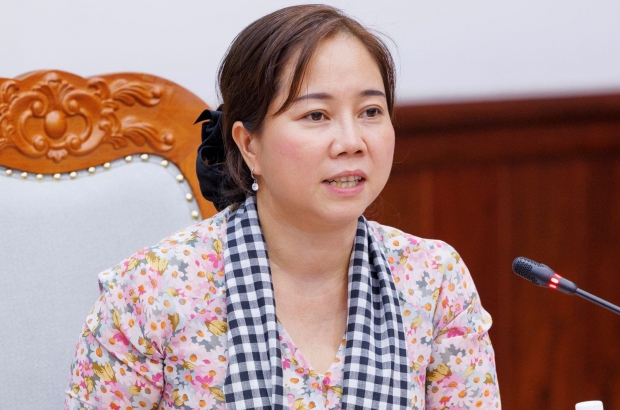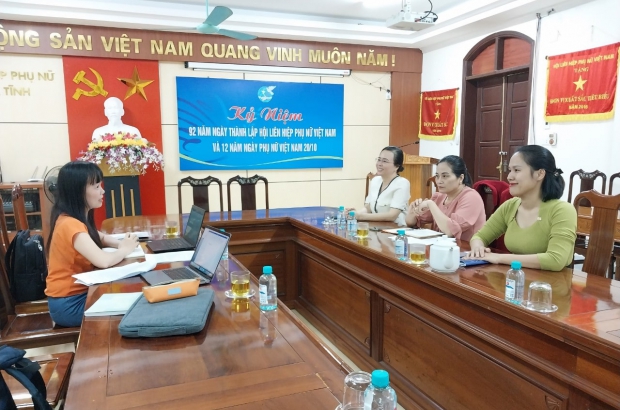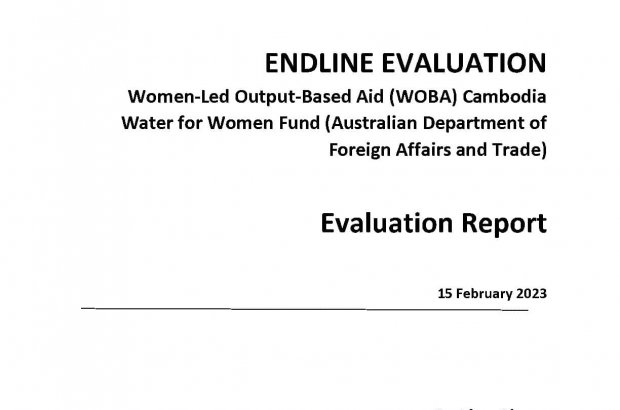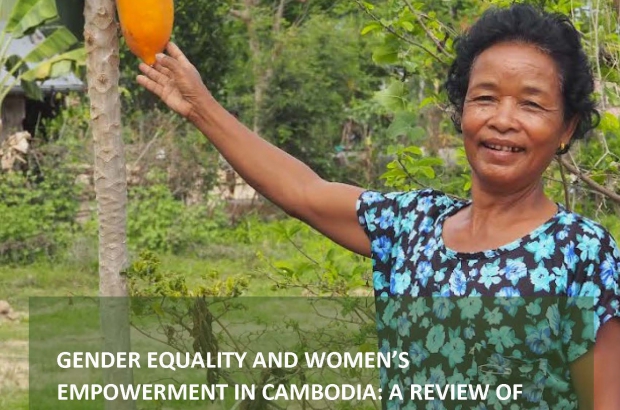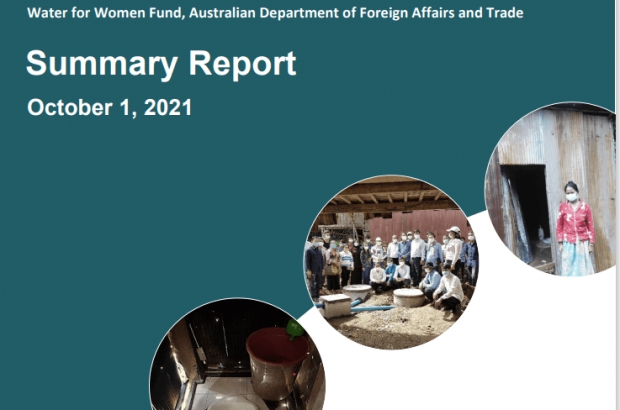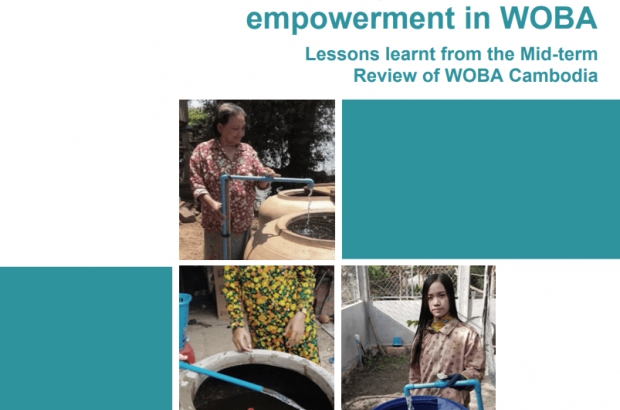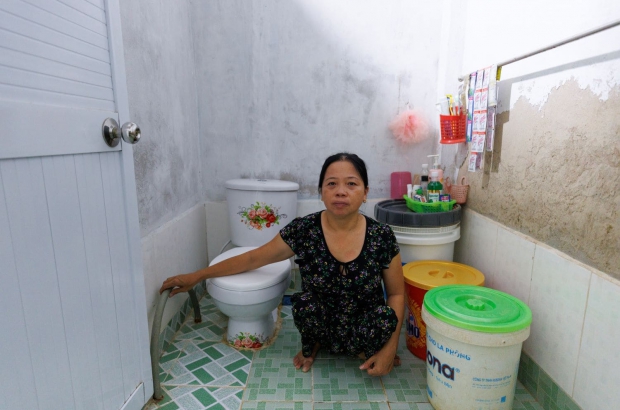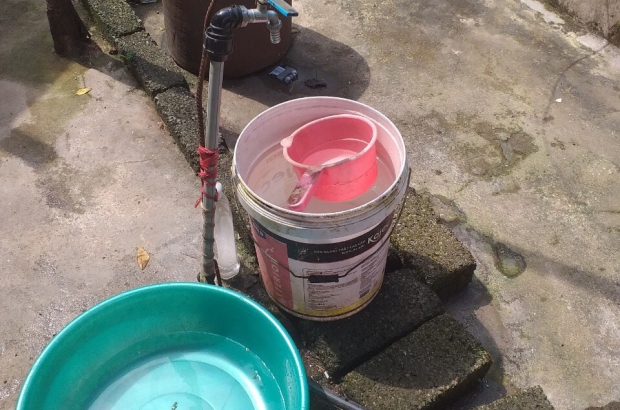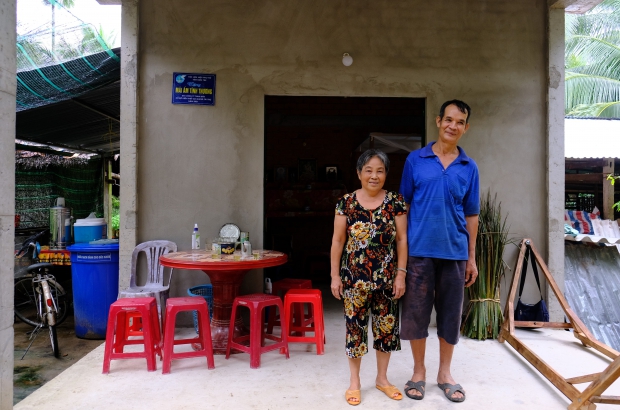22
A Rapid Review of Financial Risks for Water and Sanitation Businesses in Cambodia
This review of prior studies on financial risks in supply market of WASH products and services was conducted to better understand financial risks issues generally in developing countries and specifically in Cambodia. The report synthesises issues identified in the review and document the risks that WASH businesses encounter along the supply chains, and factors associated with these financial risks in the WASH markets particularly in Cambodia. The results are used to develop a questionnaire to survey private sector WAS suppliers in the WOBA project.
21
Report of WOBA Cambodia latrine and water verification (July 2019 – Oct 2021)
This report presents the results of WOBA’s verification of newly built latrines and new piped water connections. The verification was conducted in the period of July 2019 to October 2021 for 5,325 latrines and 128 water connections by the EMW WASH team.
27
Summary report of the Mid-Term Evaluation of WOBA Cambodia
This report summarises the findings of the mid-term evaluation of WOBA Cambodia. The evaluation assesses WOBA’s progress towards its planned outcomes and support learning by exploring the effectiveness of the strategies and activities implemented from June 2018 to June 2021. The summary report explores some initial indications of impacts and sustainability. It provides important recommendation in the ongoing implementation of the program and progress towards the project’s end-of-program outcomes.
26
Opportunities and Constraints for Women’s Empowerment in Vietnam’s Rural WASH: 5 Case Studies of WOBA Communes
The Women-Led Output-Based Aid (WOBA) Vietnam is a project designed and implemented by Thrive Networks/East Meets West Foundation (EMW) to address challenges and inequities in Vietnam’s rural water, sanitation and hygiene (WASH) sector. A research study on the opportunities and constraints for women’s empowerment through WOBA Vietnam aims to consider all relevant domains in which women’s empowerment opportunities can arise through. The study aims to capture the gender experiences of women in WOBA from different perspectives: political, WASH work and entrepreneurship, community, households. The study also surmises that women must have the opportunities to engage and empowered as users, managers and change agents in their households, communities, political forums, and businesses.
22
Opportunities and constraints for women's empowerment in Vietnam rural WASH: A case study of Ha Tinh province
This learning note presents the case study of Son Linh, a mountainous commune in Huong Son district, Ha Tinh province in our research on the opportunities and constraints for women’s empowerment in a donor funded WASH project implemented in 5 rural provinces of Vietnam. Focusing on the seven domains of the National Strategy for Gender Equality 2011-2020, the paper offers some implications for policy and practice for improving gender equality and women empowerment in rural Vietnam.
24
End-line Evaluation Report for Women-Led Output-Based Aid (WOBA) Cambodia
The evaluation report focuses on all aspects of the project programming, including sanitation, piped water connection, climate resilient water safety plan pilot, FSM pilot, menstrual health hygiene training, and other WASH related trainings.
24
Gender Equality and Women’s Empowerment in Cambodia: A Review of National Policies and Strategies
Cambodia is a signatory of all fundamental international human rights treaties, such as the Convention on the Elimination of all Forms of Discrimination against Women. Based on these commitments, Cambodia has made significant progress in gender equality over the past 25 years (UN in Cambodia 2022). Cambodia actively adopted the Sustainable Development Goal 5 (SDG 5) and the National Five Year Strategic Plan for Strengthening Gender Mainstreaming and Women’s empowerment called “Neary Ratanak” regularly. Based on a report by the World Economic Forum (WEF), gender gaps in Cambodia had been reduced with a new ranking of 89th in 2019 (out of 153 countries) compared to the previous ranking of 108th in 2014 (out of 142 countries) (MoWA 2020). This report synthesises the key elements of policies and strategies and points to the opportunities and gaps for progress towards the vision set in the national regulatory framework.
23
Summary report of the Mid-Term Evaluation of WOBA Cambodia
This report summarises the findings of the mid-term evaluation of WOBA Cambodia. The evaluation assesses WOBA’s progress towards its planned outcomes and support learning by exploring the effectiveness of the strategies and activities implemented from June 2018 to June 2021. The summary report explores some initial indications of impacts and sustainability. It provides important recommendation in the ongoing implementation of the program and progress towards the project’s end-of-program outcomes.
23
Gender equality and women’s empowerment in WOBA: Lessons learnt from the Mid-Term Evaluation
WOBA can be said to contribute to women’s leadership and empowerment in WASH through recruitment of the Committee for Women and Children (CCWC) women to the Committee of Commune Council, and the CCWC members’ self-perception that they are change agents. At the same time, there remains a gendered view about women in WASH as domestic activities. This leaning note discusses some of the gaps in reaching outcomes of women’s empowerment in WOBA. It offers some recommendations to promote gender transformative mindset among partners and improve gender empowerment for CCWC women. More research is needed to understand gender and empowerment for all women involved in WOBA including water operators, Commune Council members, volunteers, households, and the CCWC.
36
Mid-term Review Report: Women-Led Output-Based Aid (WOBA) Vietnam
This report presents and discusses the findings of the mid-term evaluation of WOBA Vietnam. The evaluation assesses WOBA’s progress towards its planned outcomes and support learning by exploring the effectiveness of the strategies and activities implemented from June 2018 to June 2021. The report explores some initial indications of impacts and sustainability. It provides important recommendation in the ongoing implementation of the program and progress towards the project’s end-of-program outcomes.
24
Report of the endline evaluation of Women-Led Output-Based Aid (WOBA) Vietnam
The purpose of the Endline Evaluation is to assess the WOBA project using the OECD Development Assistance Committee (DAC) evaluation criteria including Relevance – Effectiveness – Efficiency – Impact - Sustainability. The theory of change defined for WOBA Vietnam has been used to define evaluation priority areas of inquiry which in turn links to the key evaluation questions. The priority areas of this Endline Evaluation are: 1. WASH services implemented using OBA focusing on the water component 2. Gender equality and social inclusion approach and outcomes 3. Fecal sludge management pilot 4. Climate resilient water safety plan pilot
25
Impacts of WOBA for marginalized households in rural Viet Nam. Lessons learnt from the Mid-Term Review of WOBA Viet Nam
This learning note is based on the findings from the mid term review of WOBA Vietnam, to share the knowledge and lessons learned about the beneficiaries’ WASH needs and the intended/unintended impacts of the WOBA project for the beneficiaries who are the marginalized households in the rural Vietnam.

